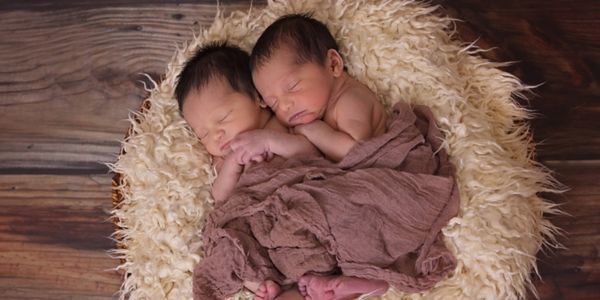

“Don’t call me good!”
This sentence is sure to resonate with many parents up and down the country, especially today – World Book Day. The sentence is a well-known line from The Gruffalo; a favourite book of many toddlers and parents around the world. From what I’ve seen, you’d been hard-pressed to find a home with a small child that doesn’t have at least one copy of the beloved book!
It’s a phrase that the Mouse uses to try and persuade the Gruffalo not to eat him (spoiler: it works), but I also genuinely think it’s there to add a layer of humour for grown-ups. You see… my husband and I have had many conversations about the ‘lessons’ that the story teaches young ones; and we’ve frequently talked about this line in particular. Some will see it for the phrase that it is – a tactic to avoid peril, whereas others will see it as an indicator that actually… the Mouse isn’t good! He’s a naughty little mouse for telling lies!
Today being World Book Day, and having wrestled our boy into a Gruffalo t-shirt that says “Don’t call me good!”, got me thinking about the phrase with regards to toddlers in general…
Being called ‘good’ is something that happens a lot in our house. We frequently tell our 21-month old son that he has ‘been good’ or ‘is good’ because of his behaviour. In fact, it’s such a widespread phrase that our whole family repeat this phrase all the time.
And when I say ‘all the time’, I mean, even when he’s been ‘naughty’. “Good boy for eating nearly all your dinner and not spilling ALL of it on the floor…” “Good boy, you only used the grey crayon on our grey sofa.”
And there’s a big reason for this, Joey is the first of a new generation for both my husband and I’s families for quite a long time; 21 years to be precise. He is absolutely doted on, spoilt rotten and we’re all fascinated with him. So fascinated that I actually have a photo of the whole family cooing round his Moses basket, with him holding everyone’s attention as they peer in at him when he is only a few months old. And that behaviour hasn’t exactly changed. My mother-in-law always says that when we come to visit she ‘doesn’t need a TV’ and she goes so far as to pop her glasses on to ‘get a better look’ at him!
There is, of course, nothing wrong with this. It’s lovely, it’s precious, and it’s adorable that our families want to brag to anyone who will listen that our son is ‘such a good baby’. And when our second child arrives this April, I’m sure he’ll be subject to the same, if not similar, fascination and bragging by our families.
But as a mum, sometimes, just sometimes, ‘good’ is the worst possible word for your child. ‘Good’ is SO subjective. We all know that children have tantrums. We all know they have fussy phases. They teethe, they get ill, they do things you tell them not to, they push boundaries. We all know that a lot of the time toddlers are not actually ‘good’.
Toddlers will frequently test boundaries which is completely healthy, it’s part of their learning and development. And they are more likely to do that in an environment they feel safe in; so as a mum it’s a real compliment that our bond is SO strong that he will choose ME to be the one that he screams at during nappy changes. That he chooses ME to be the person he throws peas at when he has decided for whatever reason that peas are not his favourite anymore.
By and large Joey is a ‘good’ child and I’m told this a lot, but we have to look at how we define ‘good’. What about his behaviour makes him good? Well, if I look at the occasions when people perceive him as good, it’s when he’s: quiet, occupied, cuddly or asleep… A fraction of the time he spends in front of others. There was once a time that we would go out every day simply because getting out of the house resulted in ‘good behaviour’, as he’d go stir crazy and bored at home!
What words would I, his mum and primary caregiver, use to describe him? Challenging. Stubborn. Bright. Inquisitive. Determined.
I want to raise a strong child who is well equipped for this world. So, maybe he does lie when the Gruffalo attempts to eat him. Maybe he challenges the views of others that he doesn’t agree with. Maybe he reserves the word ‘good’ for a future pet dog…
So, from one exasperated mum to those reading this: please remember that the child you are seeing in front of you may well be ‘good’. But when they go home, they may not fit this traditional mould. There are SO many other words we can use in front of our children to help them grow and develop – just being ‘good’ isn’t the only goal in life. Our girls should be rewarded for being strong, determined and challenging. Our boys should be praised for being inquisitive, bright and caring. So let’s change the words we use around our children…
Don’t call them good!
Follow her on Instagram and Facebook.
(Image credit: The Gruffalo by Julia Donaldson and Alex Scheffler)



.png)






.jpg)




